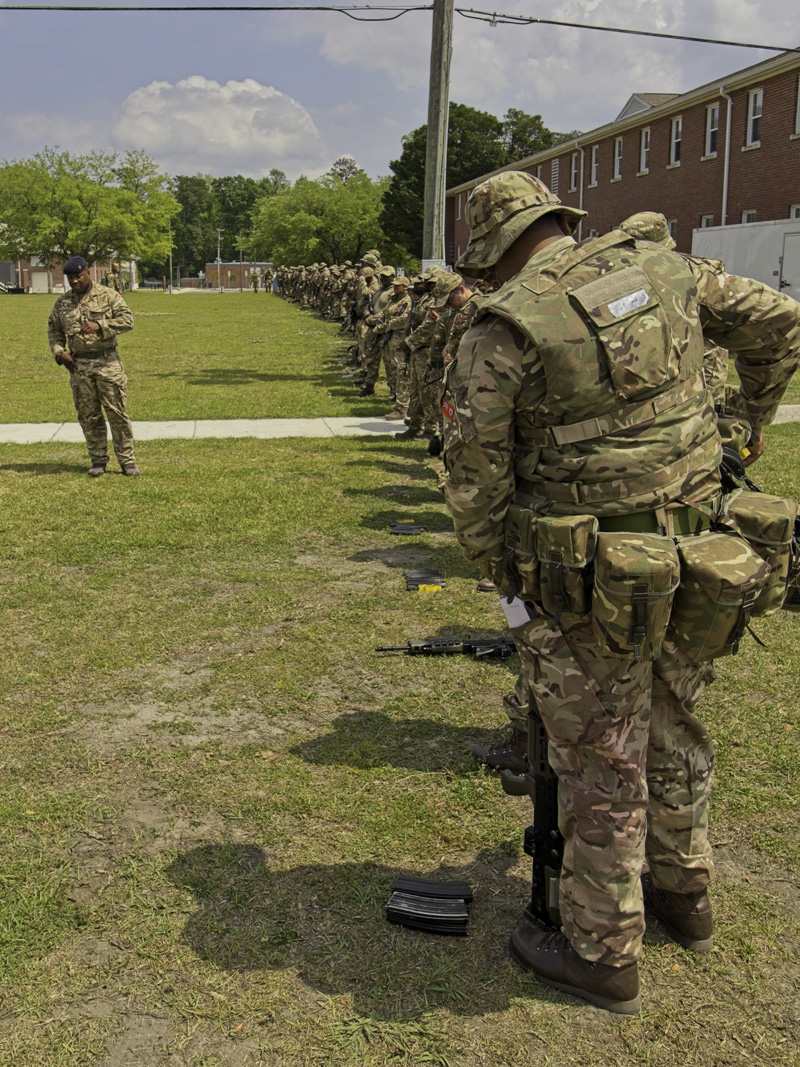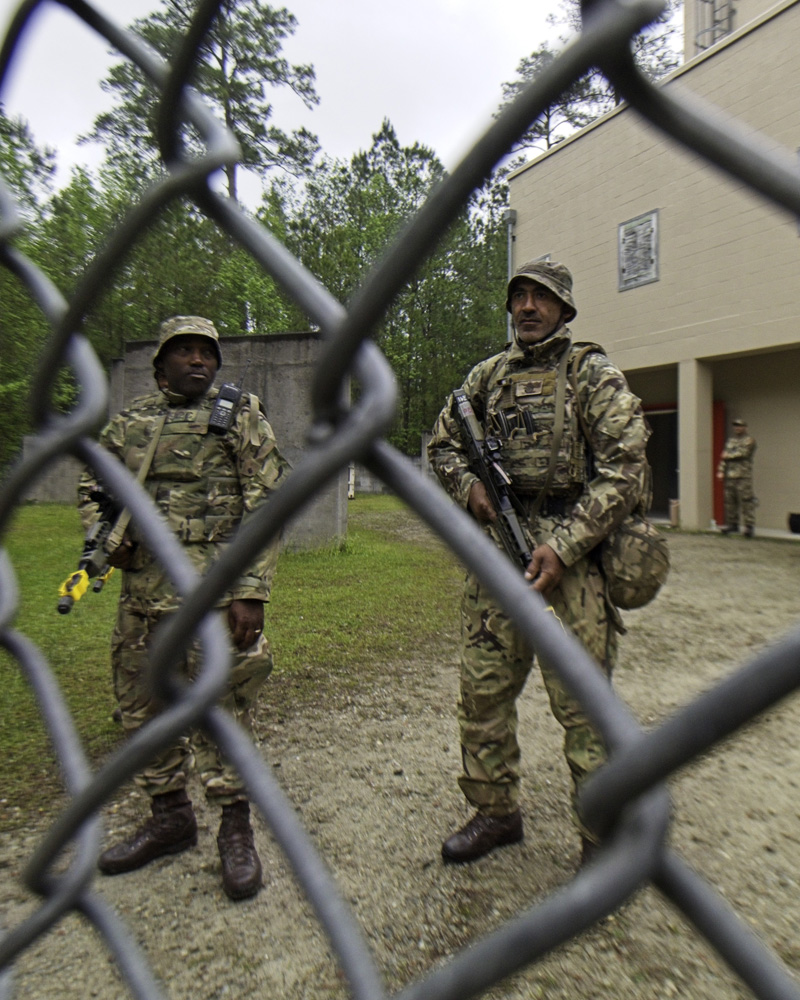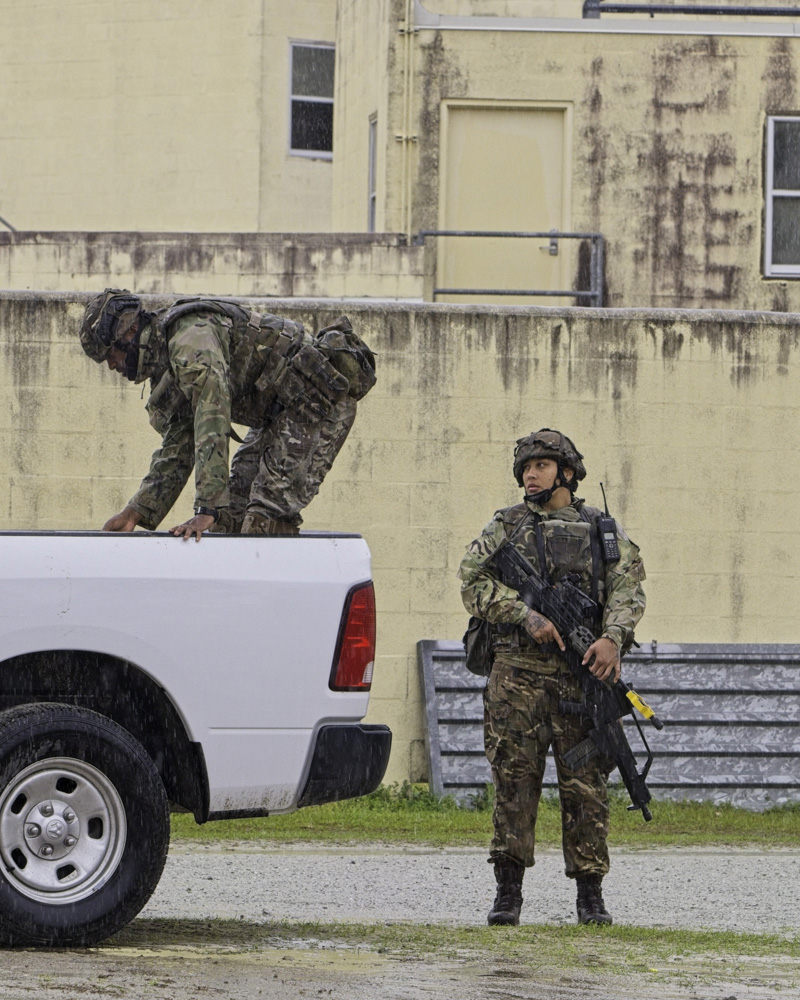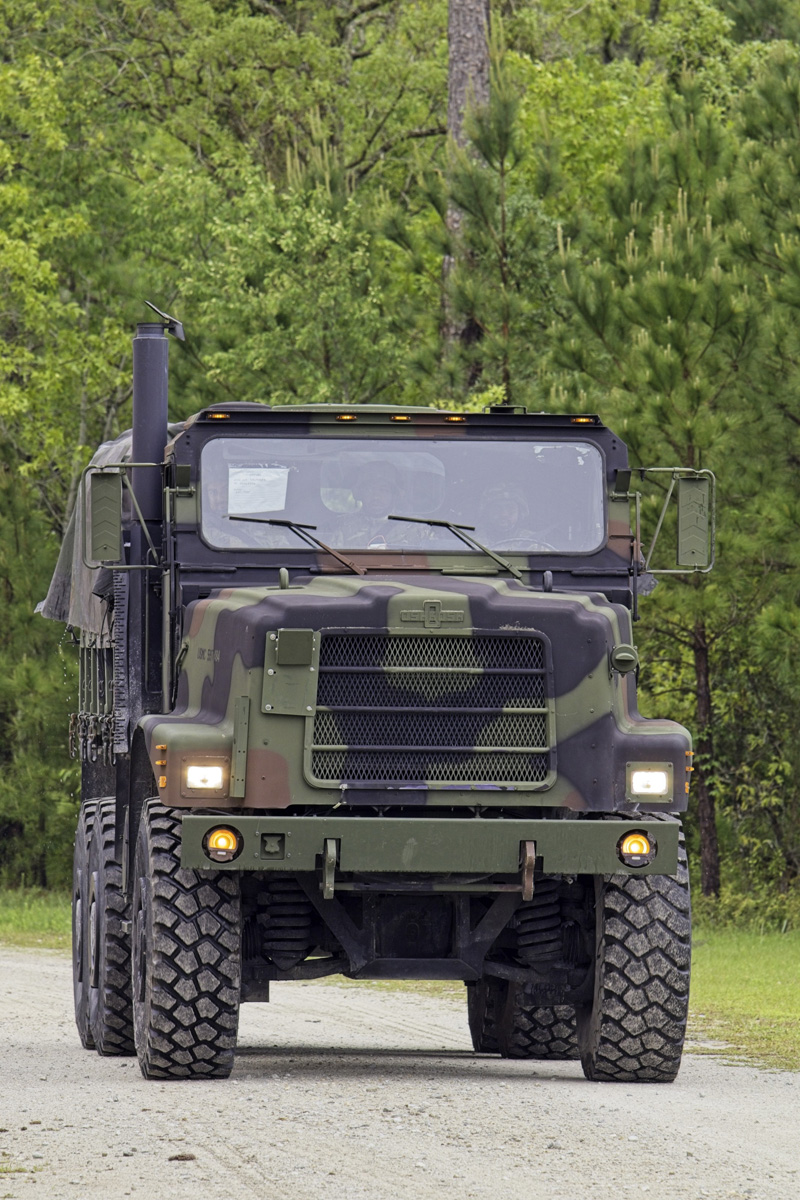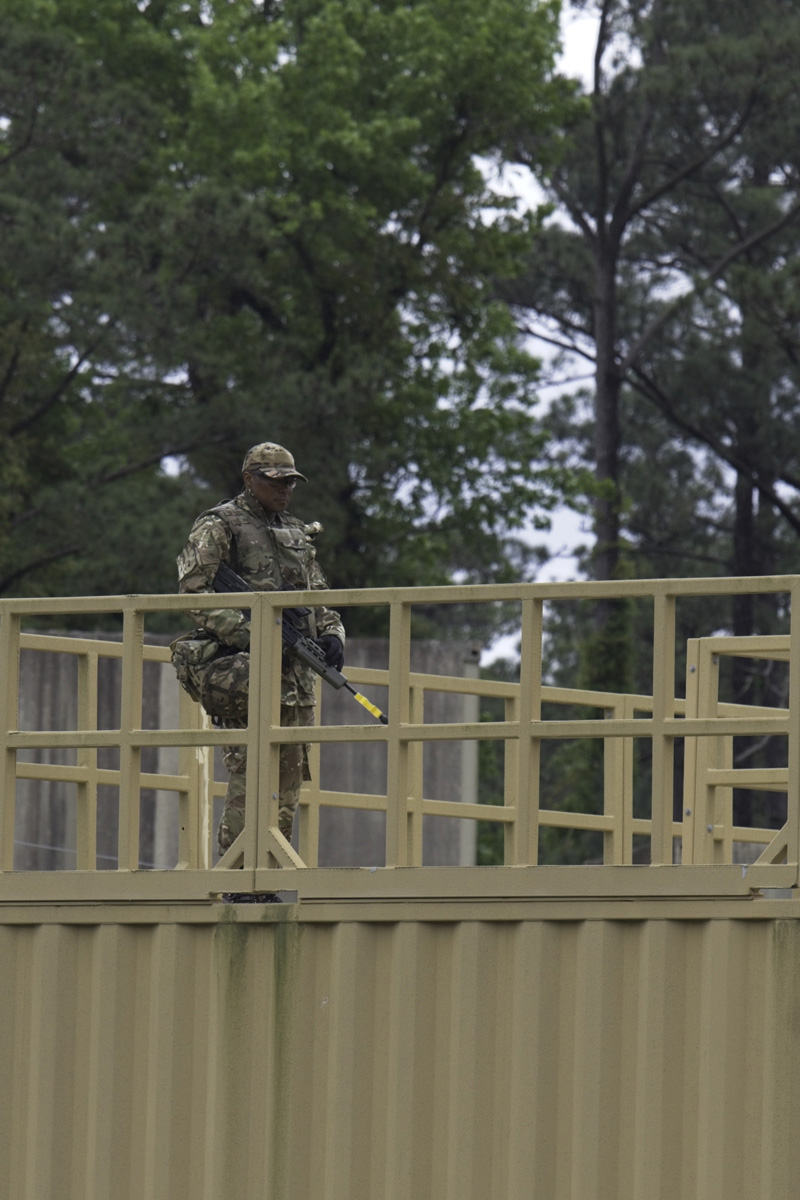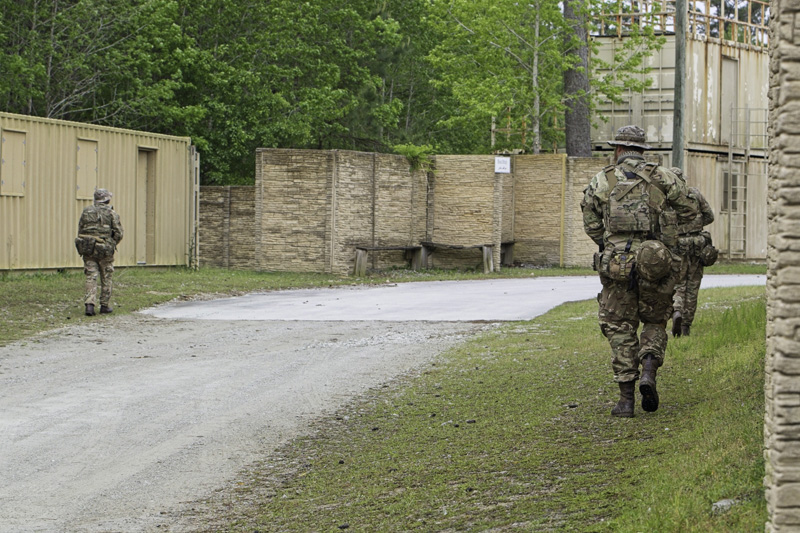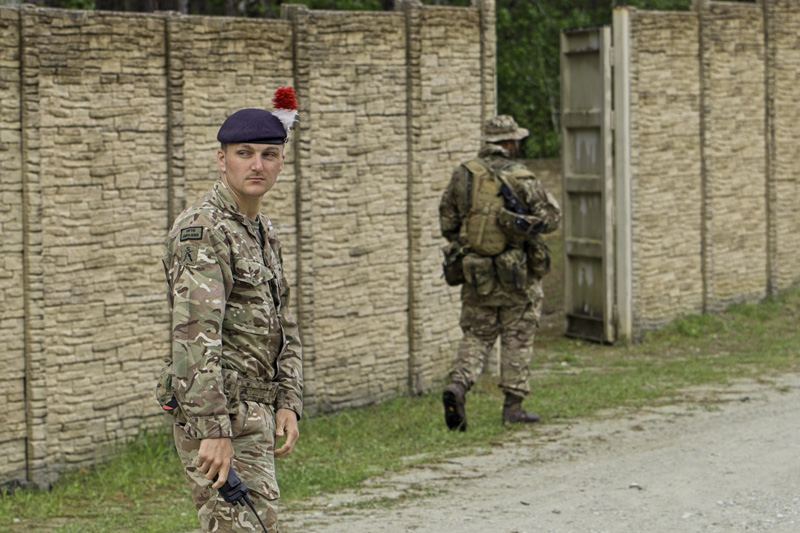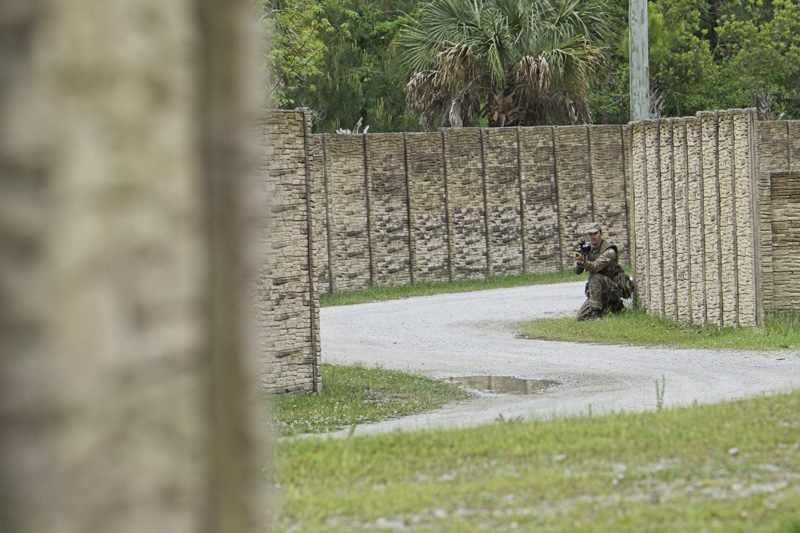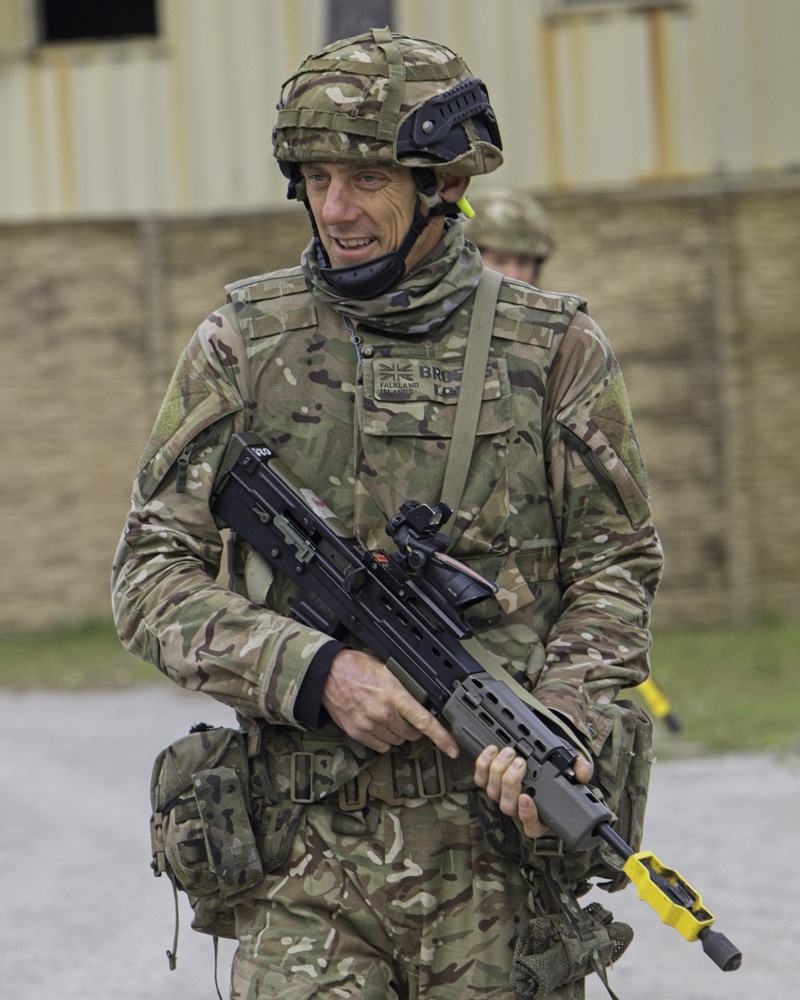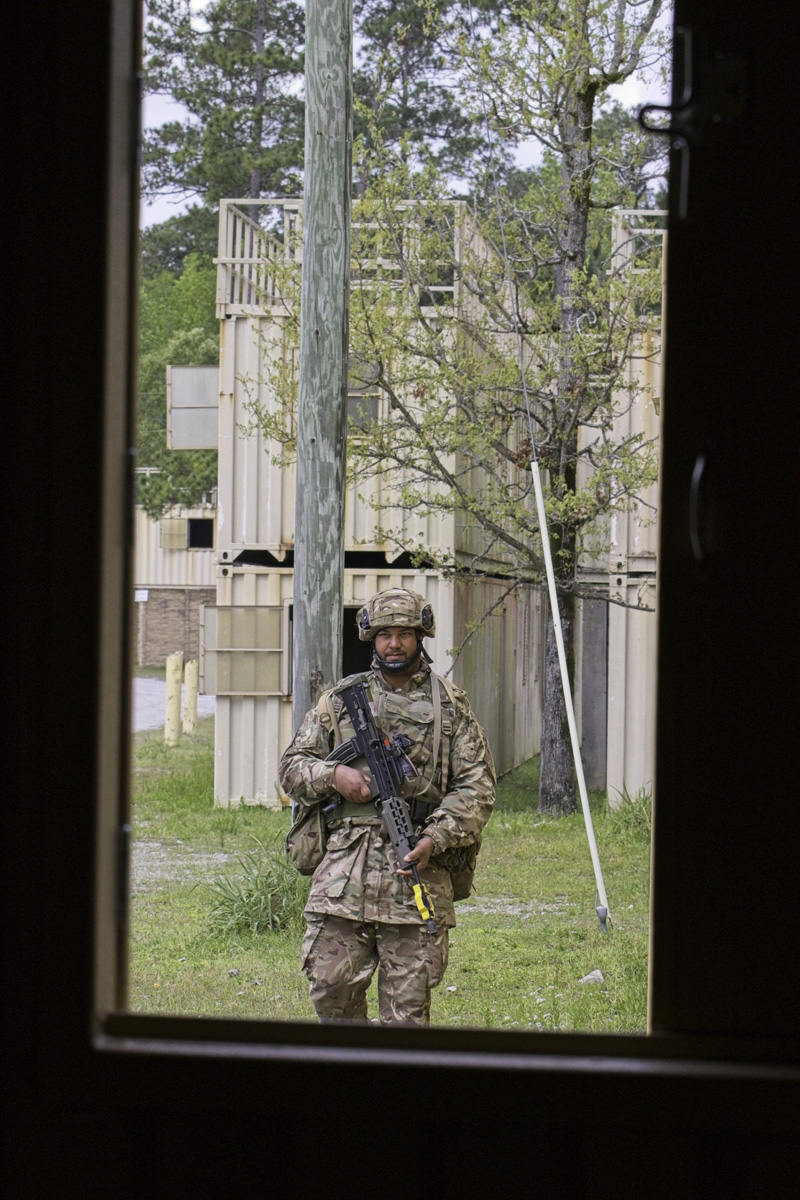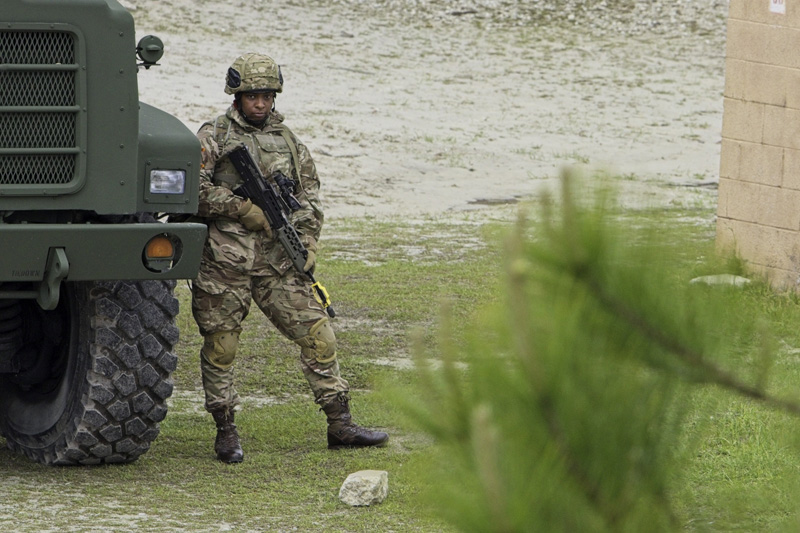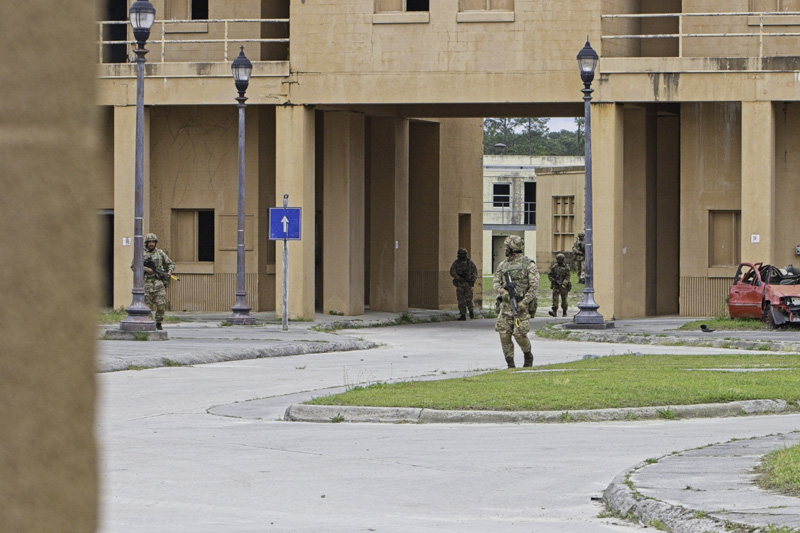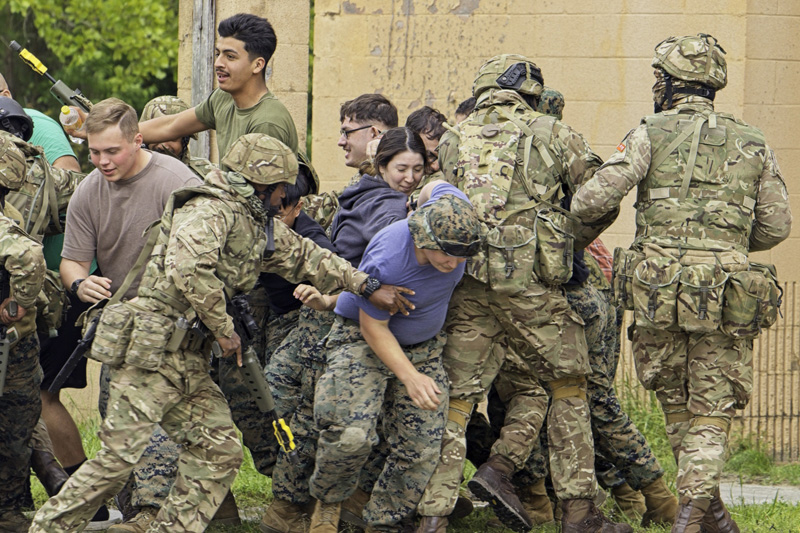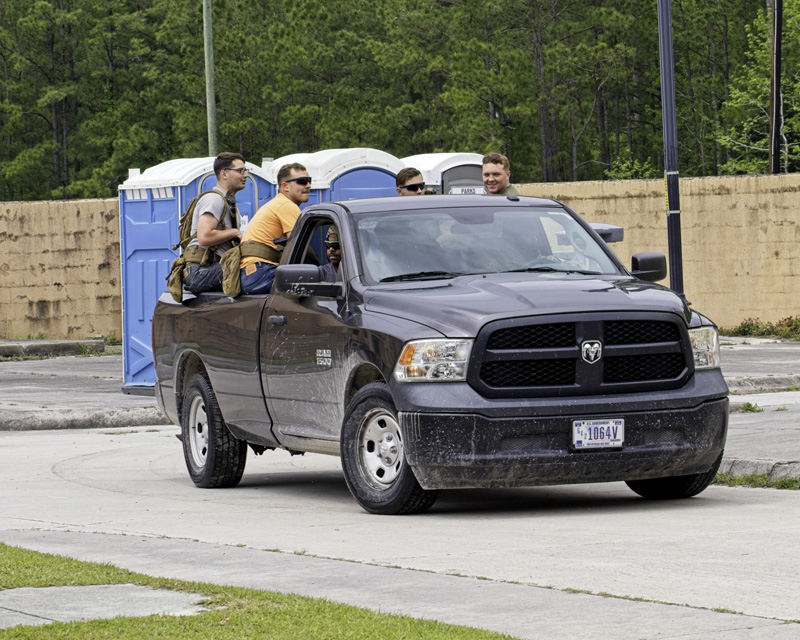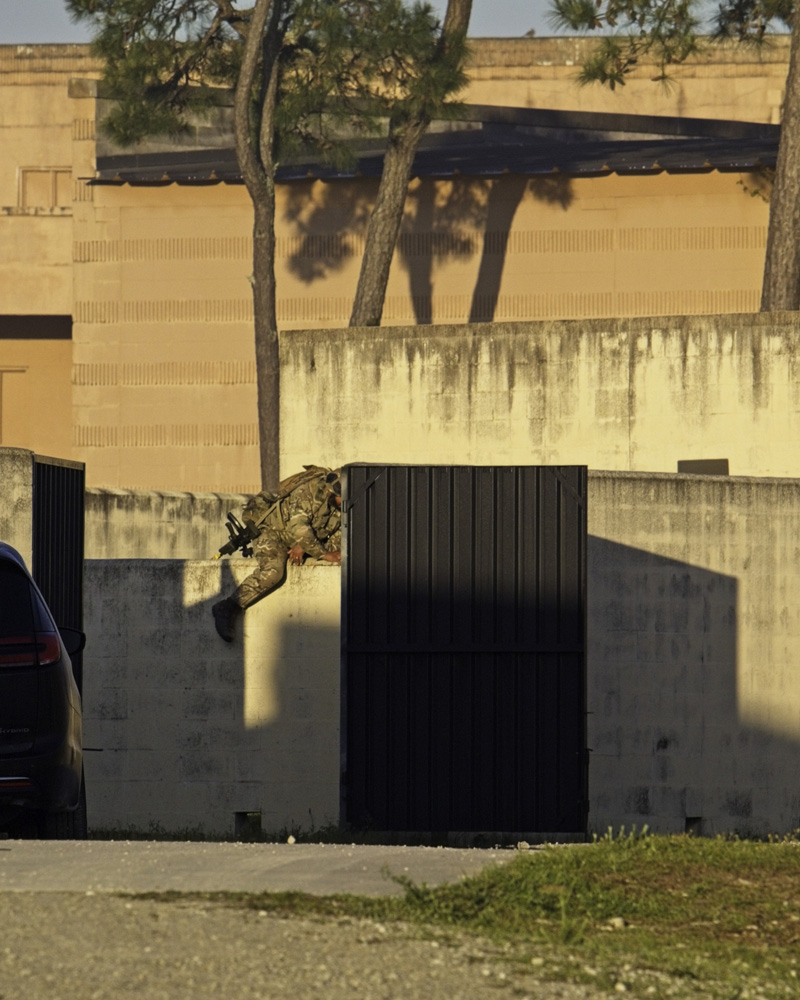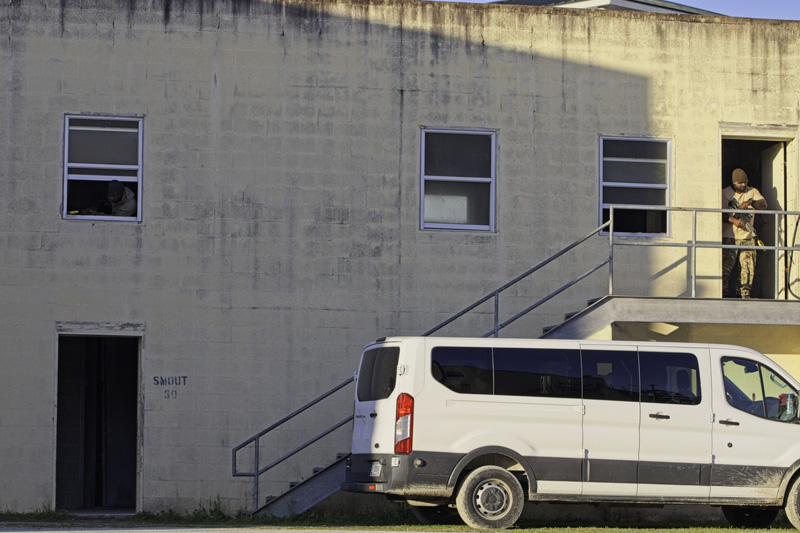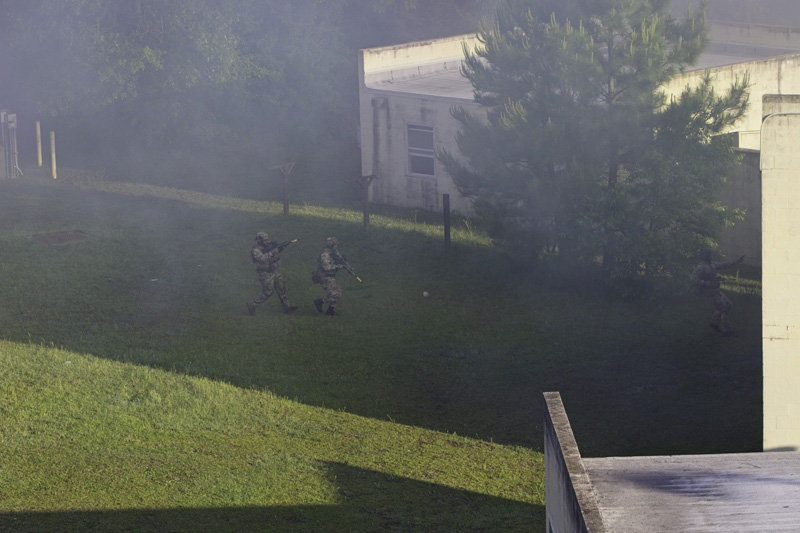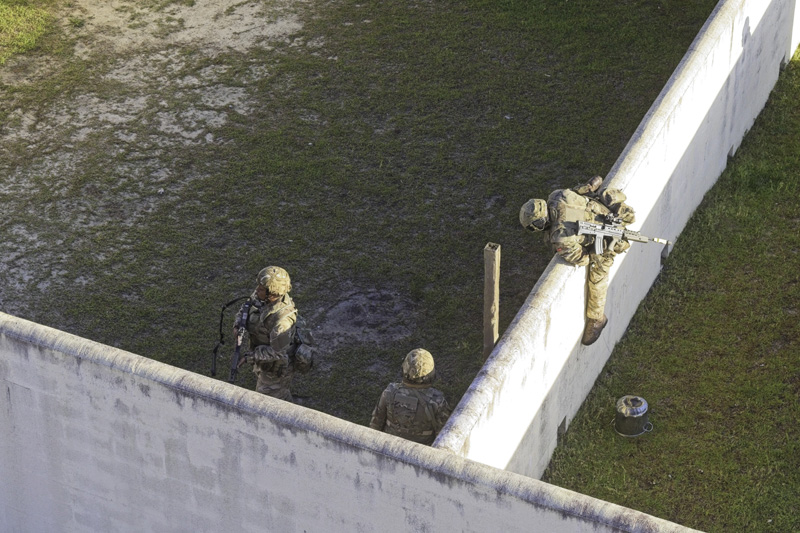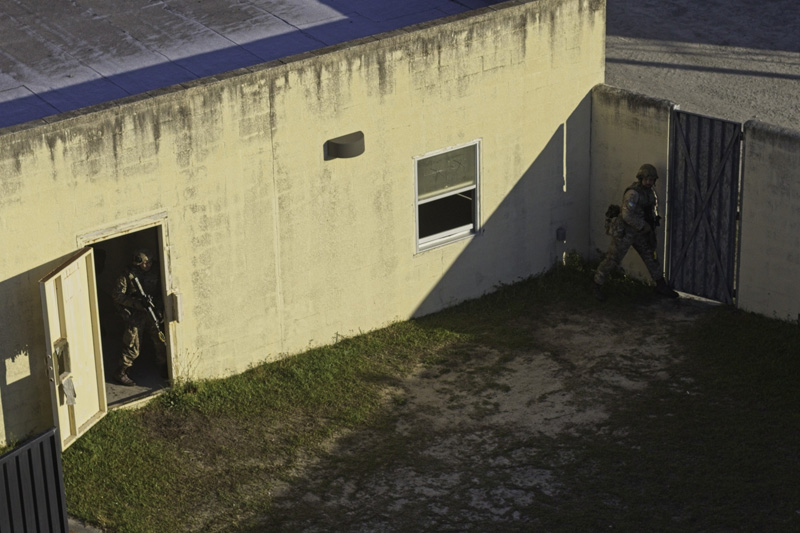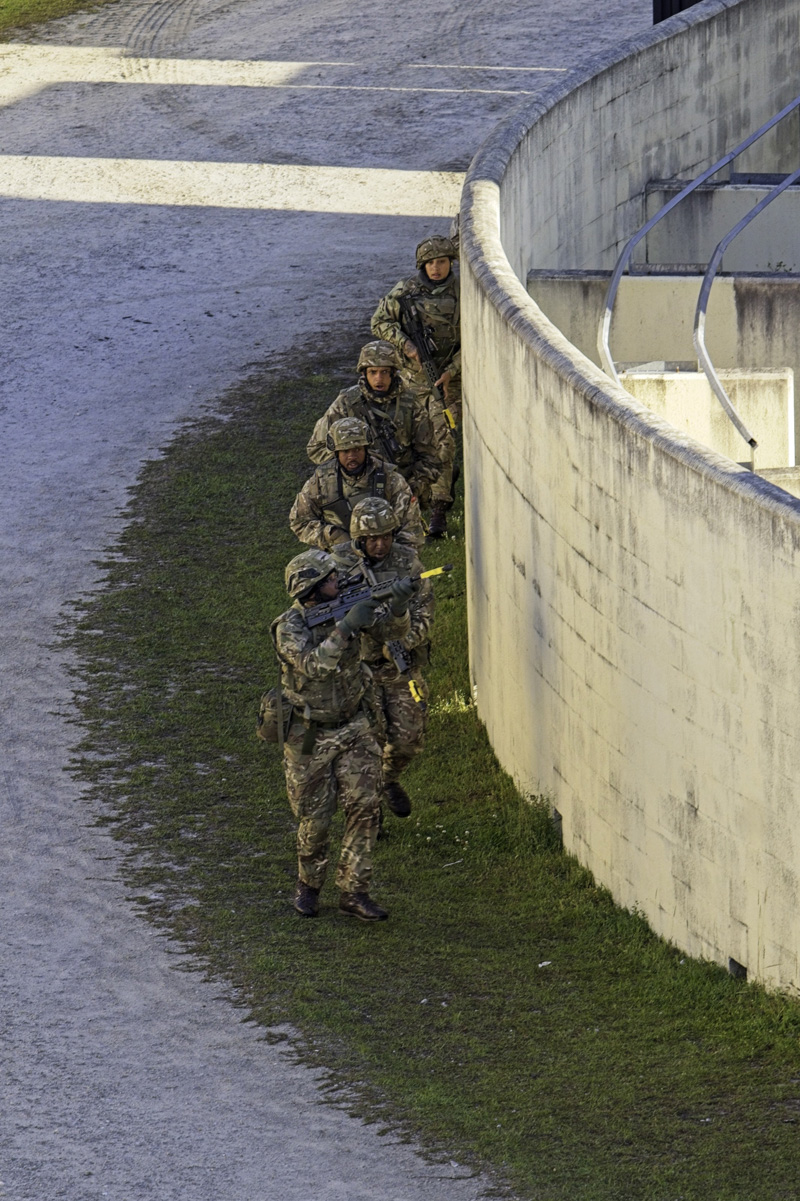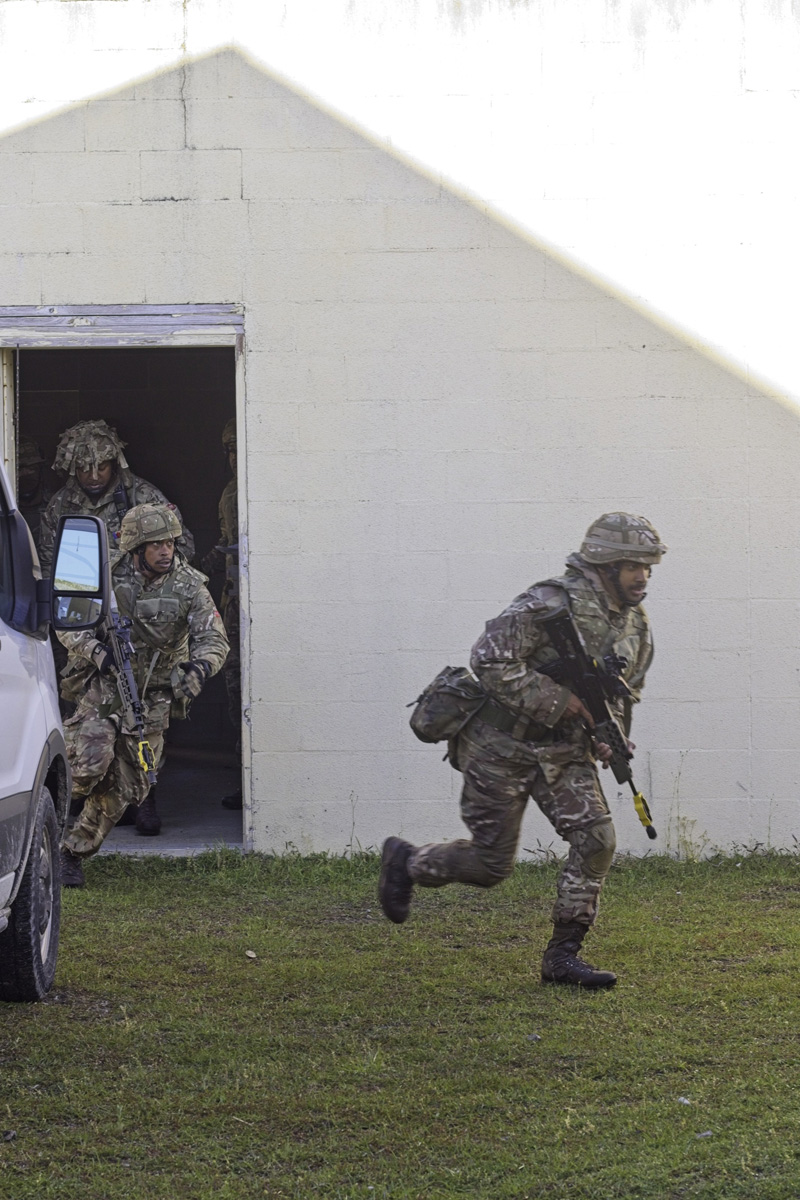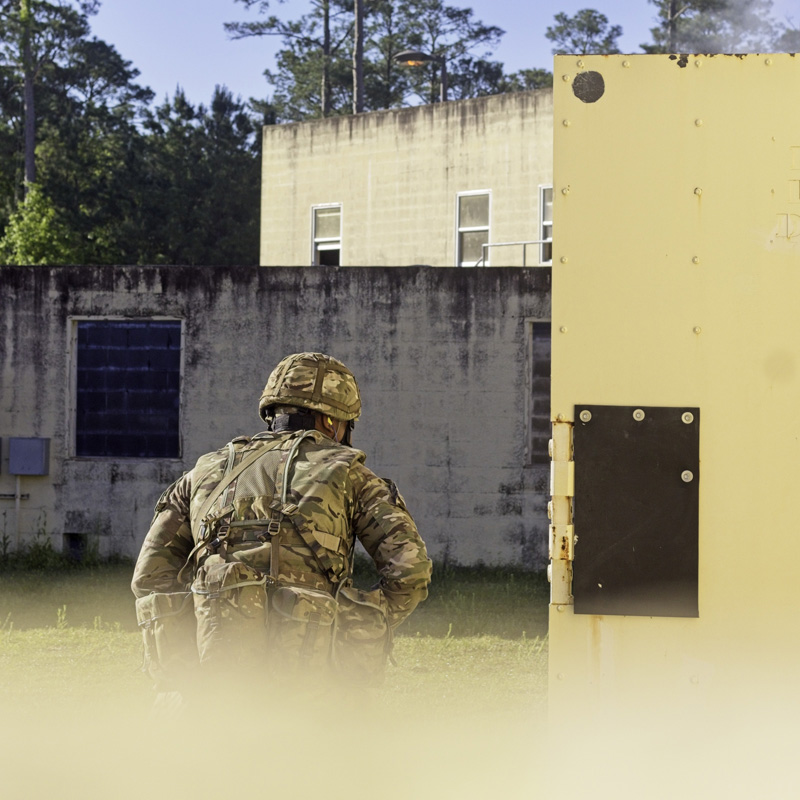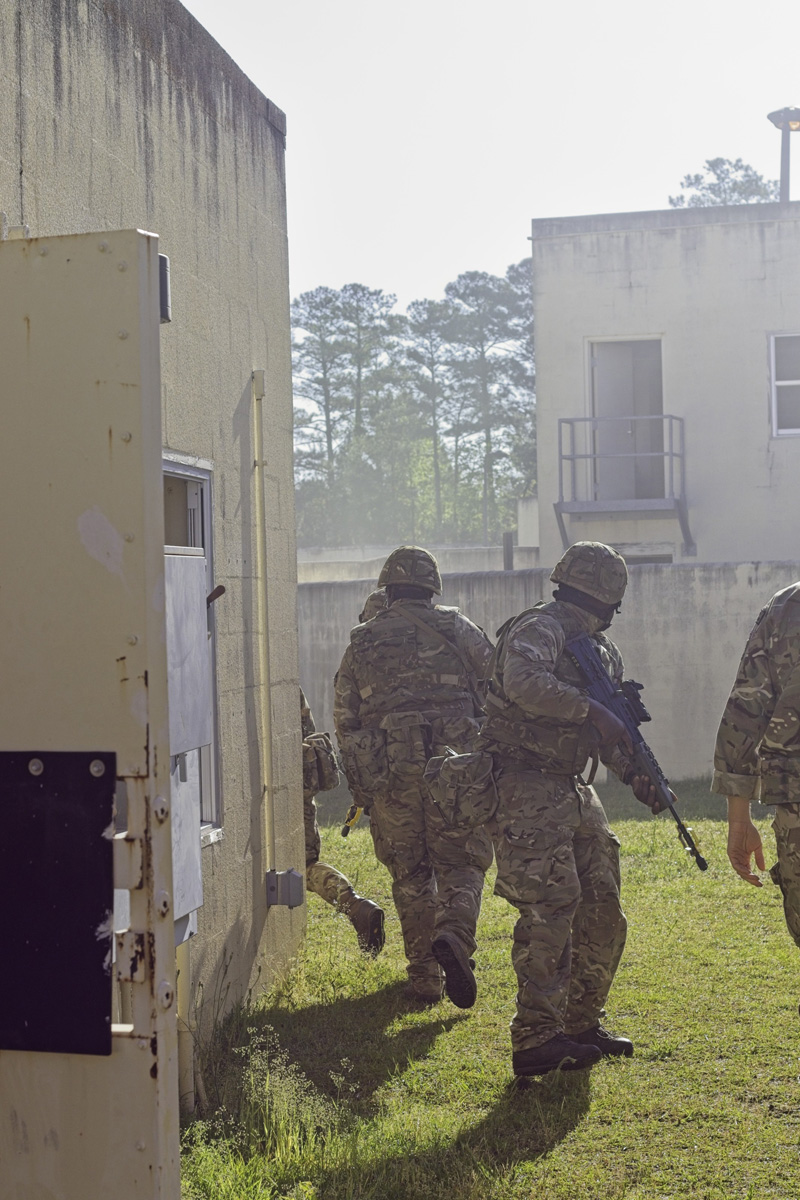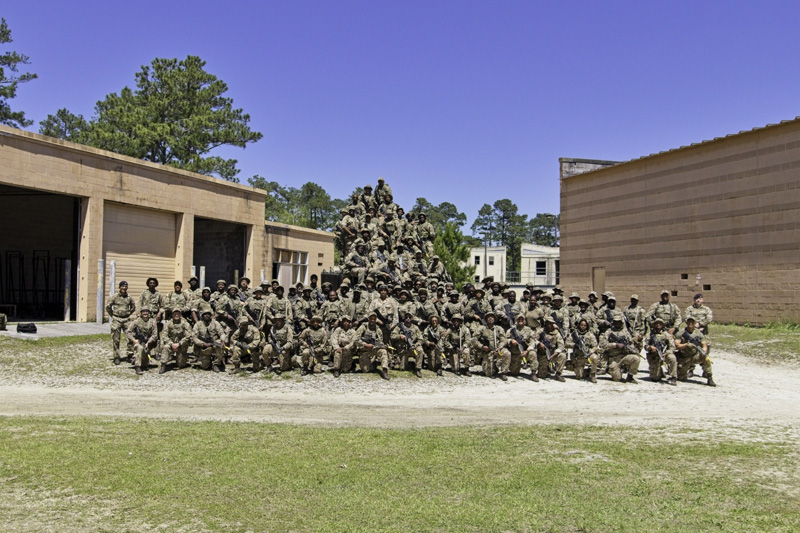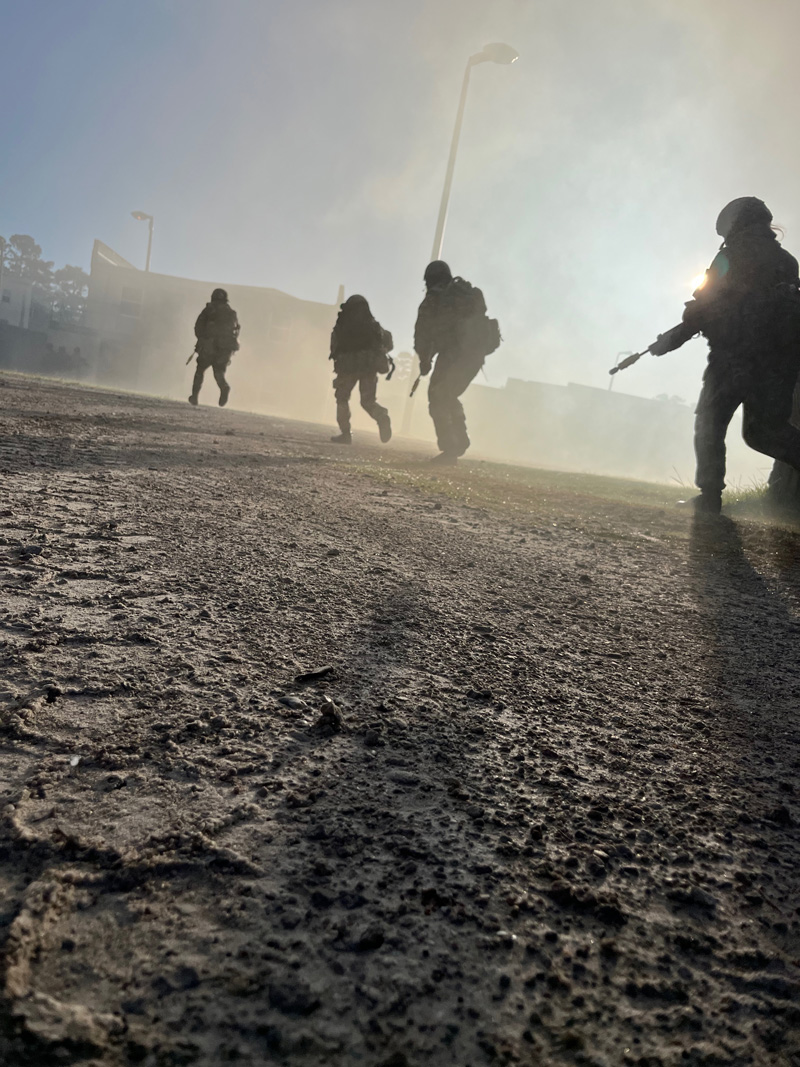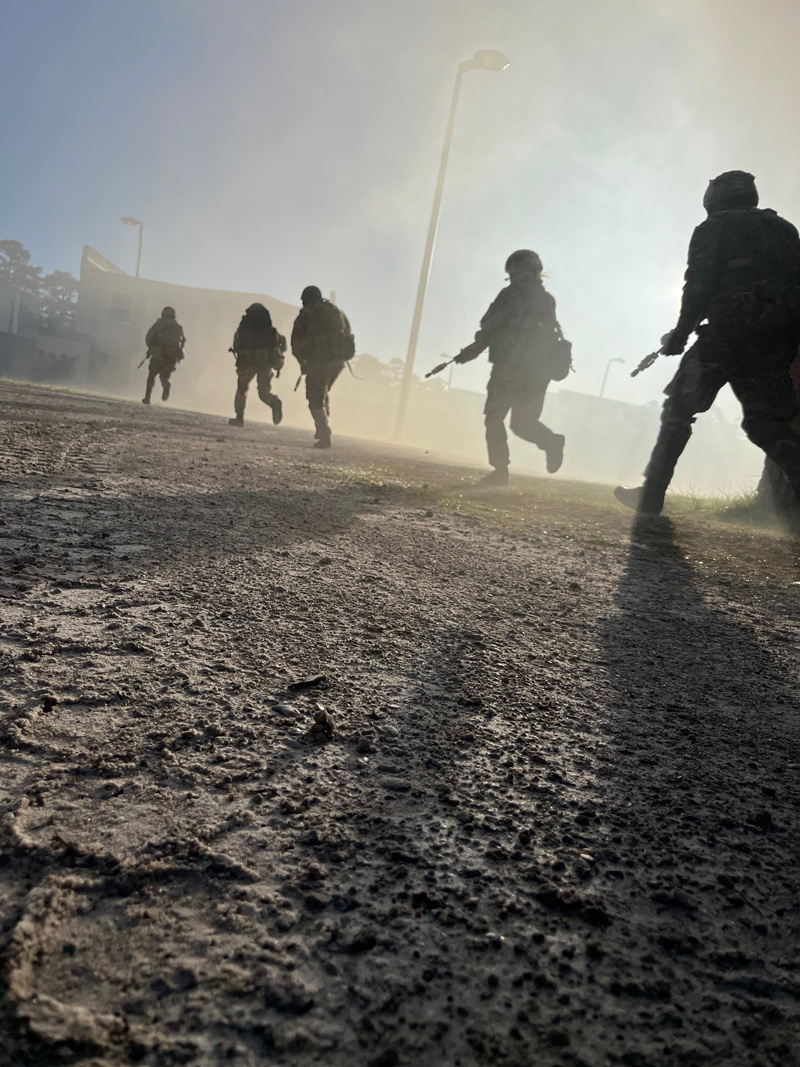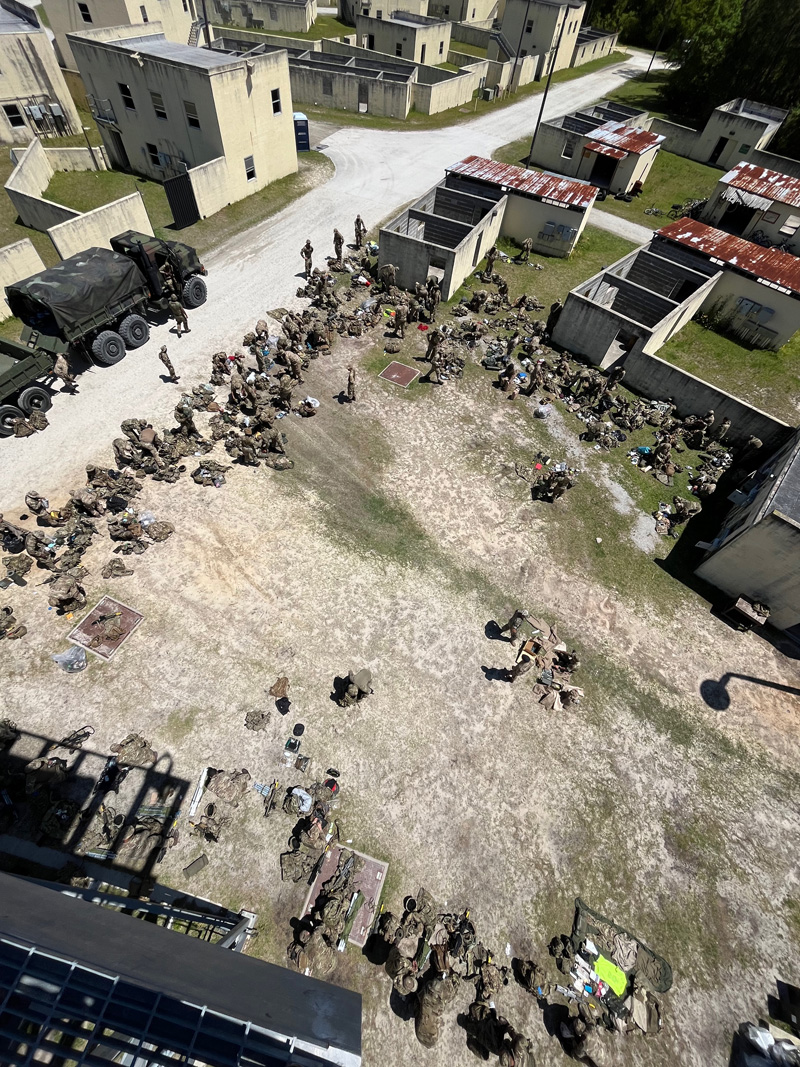Photos: Regiment Annual Camp Final Exercise
Soldiers from the Royal Bermuda regiment continued training at Exercise Island Warrior 24,
A spokesperson said, “Skills and drills practised by soldiers on Exercise Island Warrior 24 over the past ten days were called upon in a four-day training task set to a storyline that included socioeconomic tensions, gangs and rising crime rates.
“In the mock scenario, troops from the Royal Bermuda Regiment carried out reassurance patrols on residential streets, provided protection during a food distribution operation for hungry civilians and sought out an individual wanted by authorities. The training tested resilience and emotional stress levels to show how the force could perform in situations of civil unrest or humanitarian crisis.”
Sergeant Murricko Iris, who was a platoon sergeant on the exercise, said: “We’ve been doing close-quarters battle for the past three days as well as urban patrols.
“It was pretty fun, I loved it and our platoon was a great bunch of people, so it made my job easier.
“I enjoyed the steady progression of the troops, from them having absolutely no experience to running a smooth attack with minimal loss and minimal casualties. It makes me feel good that we are teaching them, they’re retaining information and they’re enjoying themselves while doing it, which is the best part about learning.”
The 33-year-old sanitation worker from Devonshire added: “This is the fun stuff, this is the stuff that people want to do; it involves shooting, patrolling and looking like a proper soldier.
“You get to speak to different people and learn different cultures.
“I think it would be a great experience for any young person to join the Regiment to get some life experience, it’s amazing.”
The spokesperson said, “Lance Corporal Co-shae Bartrum was a section commander for the first time during the exercise and led a group that included members of the Turks and Caicos Islands Regiment.”
The 33-year-old animal grooming assistant, from Sandys, said: “It was something new and something different, it was a challenge; I love a challenge.
“I did some things that I didn’t think I would do, like climbing over walls and into rooms through windows. I’m not an athlete, but the job had to get done, even if the quickest route was the more difficult one. It didn’t matter what obstacles were in the way, as long as everyone got there safely.
“We really worked as a team.”
Pte Bartrum said that the exercise was a good example of what the Regiment can offer.
She explained: “It’s a challenge, it pushes your body to do things that you might not think your body could do.
“It was cold, we were staying in a metal container, so that felt like a freezer. “To survive that, to survive the exercise, to test yourself and come out the other side is definitely an achievement, especially if you’re fatigued and your body is saying you can’t do it, but your brain is saying ‘yes, you can’.
“It’s mind over matter.”
Private Derwin Adams, 35, from Devonshire, noted that members of the RBR’s B Company, which is usually focused on parades and hurricane relief efforts, have increasingly been exposed to more traditional infantry training – typically the domain of A Company.
He said: “It’s exciting to go ahead and learn the other company’s duties.”
The IT support analyst added: “Doing the humanitarian work is beneficial overall for the Royal Bermuda Regiment; you can take those soft skills out in the field and apply them accordingly.”
Pte Adams said: “The Regiment itself is a test, it causes you to think through stressful situations.
“It helps you to keep sharp with discipline, integrity – those are key for anybody, but add to that readiness, being able to deal with pressure and get the job done.”
The spokesperson said, “Sergeant Joey Duffy, a permanent staff instructor attached to 3rd Battalion, The Princess of Wales’s Royal Regiment, was one of three British instructors who supported training for the RBR troops and their counterparts from three other British Overseas Territories.”
He said: “The training helps soldiers to improve their basic skills and drills so that they don’t have to think as much about doing the basics – these things become natural to them.”
Reflecting on the efforts of the company’s 2 Platoon, with whom Sgt Duffy worked closely during the final exercise, he added: “There was definitely progression in all areas, from the private soldier level all the way up to the platoon commander.”

